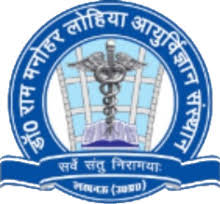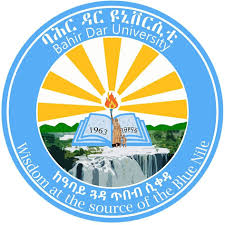Day 1 :
Keynote Forum
Vesna Popovska
Research Director, Canada
Keynote: Ethical challenges in pediatric neurology clinical trials
Time : 10:00-10:40

Biography:
Vesna Popovska has graduated from medical school in 1988, and completed her residency in Ob/Gyn in 1998 in Skopje, Macedonia. She moved to Canada in 1999 and joined the Division of Maternal Fetal Medicine at BC Women’s Hospital, where she established and lead the MFM Research Program. In 2005, she was recruited by the Neurosciences Program at BC Children’s Hospital, as a senior research manager. She developed and led the program, becoming its director in 2016. She is involved in the strategic planning, and develops collaborative relationship among universities, industry partners and CROs to support and advance patient-oriented research.
Abstract:
During the last decade, number of clinical trials have been offered to pediatric patients with neurological disorders.
Dravet syndrome (DS) or severe myoclonic epilepsy in infancy is one of the most well-known disorders of the epileptic encephalopathies. DS is a highly treatment-resistant and refractory epilepsy syndrome. Establishment of a seizure free condition in affected children, even with anticonvulsant drug polypharmacy, is extremely rare.
Duchenne muscular dystrophy (DMD) is a disabling and life-threatening X-linked genetic disorder affecting males. Boys with DMD develop progressive proximal muscle weakness that leads to deterioration of ambulation, wheelchair dependency, and eventual respiratory and cardiac failure.
Spinal Muscular Atrophy (SMA) is an autosomal recessive neuromuscular disease resulting in atrophy of the voluntary muscles of the limbs and trunk. It is the most common genetic cause of infant mortality, and a major cause of childhood morbidity in the U.S.
Clinical trials in pediatric neurology rare diseases are testing new investigational drugs (IDs). There is still an ethical dilemma if the new treatment will be better than the standard of care. There are number of unknown risks. Patient’s enrollment can be very challenging. The commitment from the families is huge. Most of the clinical trials start with the double-blind, placebo controlled design. Families have to agree on the possibility for their child to be randomized in the placebo arm. Those clinical trials might have very frequent study visits which might cause financial burden. Lot of work needs to be done to address the ethical challenges.
Keynote Forum
Ioannis Makedos
Cambridge Scholars Publishing and Cardiff University, UK
Keynote: The innovative scientific clinical data management “booster†for the clinical research
Time : 10:40-11:20

Biography:
Prof. Ioannis Makedos has completed his PhD at University of Thessaloniki. He is in Advisory Board of Camridge Scholars Publishing and Head of Researche Department in Cardiff University. Apart his academic career, he is working into real business field, as Senior Clinical Data Manager in a CRO. Additionally, has published more than 15 papers in high reputed journals and has been serving as an editorial board member and editor in high ranking scientific journals. Recently, he was awarded for his contribution in the field of the research methodology and on August 2018 his research awarded as the best one during an international conference.
Abstract:
A realistic and innovative solution for having high quality data management which certainly increase the reliability of the clinical research and therefore the fame of the companies (CRO). Our findings indicate that the appropriate research methodology for every clinical study in combination with innovative scientific clinical data management can create absolutely reliable data, zero errors, zero biased data, and high quality conclusions. Specifically, our research was based on 78 different clinical studies’ data, we realized specific research methodology for every study, according to the scientific criteria and to research ethics. We used an innovative statistical method for data analysis combining ANOVA, Chi-Square Test and Econometric Analysis (binary regression analysis model), in order to obtain high quality results, according to the validity and reliability criteria. Our groundbreaking research offers high quality and innovative clinical data management in scientific level, eliminating the biggest obstacle which is the biased results and the errors.
Keynote Forum
Donato Bonifazi
Consortium for Biological and Pharmacological Evaluations, Italy
Keynote: An innovative checklist for paediatric biosamples management
Time : 10:40-11:20

Biography:
Consortium for Biological and Pharmacological Evaluations, Italy. In the PedCRIN project, CVBF is responsible for (i) conducting a survey targeting paediatric and neonatal users, as well as patient communities to identify the needs of paediatricians in terms of infrastructures and tools for clinical trials, (ii) performing gap analysis to detect missing tools and services to support paediatric and neonatal trials, (iii) upgrading, maintaining and ensuring the sustainability of tools for neonatal and paediatric trials (ethical and regulatory database, pharmacovigilance, etc.), (iv) disseminating tools to the paediatric community and (v) developing a procedure to enable access to individual patient clinical trial data.
Abstract:
Conducting clinical research in paediatrics poses many distinctive challenges that need to be considered when planning, managing and delivering clinical trials and that require specific competences and infrastructure. Biological samples, like blood and blood fraction, tissue, urine and saliva/buccal cells, are commonly used in biomedical and clinical research. Analyses from biological samples provide key outputs in clinical trials, as for pharmacokinetic, safety and efficacy evaluations of investigational medicinal products. Consequently, it is essential that sample collection, management, storage and analysis are performed according to high standards. This is even more important in paediatrics considering that blood sampling may be difficult, the number of samples is usually limited, especially in newborns , and all the efforts should be made to minimise sample volumes. Ethical and regulatory requirements (consent, assent and data protection, particularly with respect to long-term storage), training and facilities required for samples collection and storage are relevant to grant a proper management and use of biological samples. Considering the crucial role of biological samples and the challenges they pose for researchers planning and conducting paediatric clinical trials, in the context of the PedCRIN project a tool (checklist) to support the management of biological samples and associated data in the context of paediatric clinical trials has been developed. This checklist will favour the adherence to the recommended standards and will allow to release an easy-to-use tool to help the investigators, sponsors and other research actors involved in paediatric clinical trials in the management of bio-samples.
Keynote Forum
Nabil Nasr
Associate Provost for Academic Affairs & Director, Malaysia
Keynote: Impact of Health Education Learning Package (HELP) on intestinal parasite infections among Aboriginal school children in Malaysia
Time : 11:35-12:20

Biography:
Nabil Nasr is Associate Provost for Academic Affairs and founding Director of the Golisano Institute for Sustainability at Rochester Institute of Technology (RIT). He also founded RIT's Center for Remanufacturing and Resource Recovery, a leading source of applied research and solutions in remanufacturing technologies. Nasr is also the founding Chief Executive Officer of the REMADE Institute, providing oversight of technology development as well as corporate engagement.
Abstract:
This study was carried out to develop a health education learning package (HELP) about intestinal parasite infections (IPIs), and to evaluate what impact such a package could have in terms of reducing the prevalence and intensity of IP infections among Orang Asli schoolchildren in Peninsular Malaysia. METHODS: To identify the key risk factors of IP in Orang Asli communities, we applied an extensive mixed methods approach which involved an intensive literature review, as well as community-based discussions with children, their parents, teachers and health personnel, whilst also placing the children under direct observation. To evaluate the package, 924 children from 13 schools among 6 States were screened for IP infections, treated by a 3-day course of albendazole and then followed up over next 3 months and 6 months. The knowledge of teachers, parents and children towards IP infections were assessed at baseline and after 3 months. RESULTS: The developed package consists of a half day workshop for teachers, a teacher's guide book to IP infections, posters, a comic book, a music video, a puppet show, drawing activities and an aid kit. The package was well-received with effective contributions being made by teachers, children and their parents. The incidence rates of hookworm infection at different assessment points were significantly lower among children in the intervention school compared to those in the control school. Similarly, the prevalence and intensity of trichuriasis, ascariasis and hookworm infections were found to be significantly lower among children in the HELP group compared to those in the control group (P < 0.05). Moreover, the package significantly improved the knowledge, attitude and practices (KAP) of Orang Asli people and the knowledge of teachers towards IP infections. CONCLUSION: A school-based health education learning package (HELP) was developed which displayed a significant impact in terms of reducing the prevalence and intensity of IP infections. Moreover, the knowledge levels of both teachers and the Orang Asli population regarding IP was significantly improved, a fact which greatly helped in attracting community participation and thus raising the general level of awareness regarding these forms of infections.
Keynote Forum
F.X. Frapaise MD
President of the French Association of Pharmaceutical Medicine
Keynote: Blockchain In Clinical Research
Time : 12:20-12:50

Biography:
Dr. Frapaise holds an M.D. degree from Faculté de Médecine René Descartes Paris France, and is an INSEAD alumni. He is President of the French Association of Pharmaceutical Medicine, IFAPP Officer and member of the Leadership team of Boston-based Trestle Compliance.
Abstract:
By design or by necessity, clinical trials protocol tend to evolve during the course of the investigation and patients must be kept abreast of any significant change to the protocol and consent in writing to the most recent versions of the protocol. Experience shows that the vast majority of patient adequately consent in writing to participate in a given trial, but that many investigators fail to ask patient to “re-consent” to the amended version of the trial.
This can have dramatic consequences, with all the data coming from a clinical center being discarded by the regulators in the analysis
To address this risk, Pharmacos and CROs deploy field monitoring resources and auditors to support investigators and detect this type of compliance issues as early as possible. Unfortunately the currently implemented risk-mitigation solutions by CROs only represent a wide-mesh net.
Blockchain technology, widely used and validated in the bank and insurance industries does provide an opportunity to address most of these consent management risks, as it provides a mechanism for immutable time-stamping of consent forms, storing and tracking of the forms in a secure and verifiable way. Blockchain technology provides a “single point of truth” for all partners involved in clinical research process, enables real-time synchronization of information between partners, while guaranteeing confidentiality and privacy as shared data can be encrypted.
In a time when many stakeholders tend to distrust data and information coming from the Pharmaceutical industry, Blockchain represent an opportunity to provide immutable and unfalsifiable data, hence increased shared trust between pharmaceutical industry and all stakeholders: patients/prescribers/ regulators.
Last, it should be mentioned that Blockchain benefits can also be leveraged in pharma supply chain management, contract management, prevention of counterfeiting.
Keynote Forum
Ioannis Makedos
Cambridge Scholars Publishing and Cardiff University, UK
Keynote: The innovative scientific clinical data management “booster†for the clinical research
Time : 12:50-13:20

Biography:
Prof. Ioannis Makedos has completed his PhD at University of Thessaloniki. He is in Advisory Board of Camridge Scholars Publishing and Head of Researche Department in Cardiff University. Apart his academic career, he is working into real business field, as Senior Clinical Data Manager in a CRO. Additionally, has published more than 15 papers in high reputed journals and has been serving as an editorial board member and editor in high ranking scientific journals. Recently, he was awarded for his contribution in the field of the research methodology and on August 2018 his research awarded as the best one during an international conference.
Abstract:
Realistic and innovative solution for having high quality data management which certainly increase the reliability of the clinical research and therefore the fame of the companies (CRO). Our findings indicate that the appropriate research methodology for every clinical study in combination with innovative scientific clinical data management can create absolutely reliable data, zero errors, zero biased data, and high quality conclusions. Specifically, our research was based on 78 different clinical studies’ data, we realized specific research methodology for every study, according to the scientific criteria and to research ethics. We used an innovative statistical method for data analysis combining ANOVA, Chi-Square Test and Econometric Analysis (binary regression analysis model), in order to obtain high quality results, according to the validity and reliability criteria. Our groundbreaking research offers high quality and innovative clinical data management in scientific level, eliminating the biggest obstacle which is the biased results and the errors.
Keynote Forum
Jay Smith
Transperfect LifeSciences, USA
Keynote: Mobile Technology for Clinical Operations: Challenges and Opportunities
Time : 14:20-14:50

Biography:
Jay Smith is Head of Product for TransPerfect’s Trial Interactive E-Clinical platform. Jay brings 25 years of product management, consulting, and engineering experience across verticals such as life sciences, enterprise software, healthcare, government, entertainment and manufacturing. Previously, Jay has led product efforts for Medidata, Sparta Systems, Cureatr, VenueNext, Apogy, and Liquent. Jay holds an MBA from Villanova University and a degree in Computer Science and Physics from Gettysburg College.
Abstract:
On the ground best practices for the use of mobile technology within e-clinical with a focus on practical applications available now for clinical operations and data management. Hear real life implementations and learnings from the field. As mobile becomes more and more common, dialog must focus on actual experiences during the conduct of trials so that clinical teams can make informed decisions on the deployment, security, and usage of mobile applications at various stages of clinical development.
In this discussion, the audience will hear real stories from clinical professionals and their on the ground experiences with mobile applications. The audience will walk away with a deeper understanding of the benefits and limitations of mobile applications in clinical operations and better enable them to adopt mobile applications with practical expectations. Attendees will be guided on the practical use of these technologies. They will learn to determine the use cases that are most relevant and applicable in Clinical Operations.
Keynote Forum
Rahul Hajare
Indian Council of Medical Research, India
Keynote: What sex does to a woman's brain Lesson learn from power politics pharmacy institutions in Pune University
Time : 14:50-15:20

Biography:
Dr. Rahul Hajare has been a hard worker all his academic life. After his Ph.D in Pharmacy from VMRF Salem which he completed with flying colours, he is fortunate to work NARI primer HIV research Institute to complete Post Docunder the of World Renowned Scientist Respected Dr. R.S.Paranjape., Retired Director & Scientist ‘G’ National AIDS Research Institute Pune. Dr. Rahul Hajare has Associate Professor of Pharmaceutical Medical Chemistry to Pune University (until 2020), he has serviced three times Associate Professor in Pharmaceutical Science and Analytical Science. Graduated from Amravati University in 2003, after an assignment he worked as an M.Pharm Scholar in the Institute of Pharmaceutical Education and Research passed with distinction, he has Post Graduate Teacher for Master of Pharmacy, he has more than 30 scientific and methodological works, 3 patents of scientific research. Dr. Rahul Hajare now Principal of Ishwar Deshmukh Institute of Pharmacy affiliated combined Amravati University and All India Council of Technical education New Delhi.
Abstract:
A female mind reacts much more and is more stimulated than a male one when aroused. Turns out, a woman's mind is much more complex than a male's when it comes to intimacy; a female mind reacts much more and is more stimulated than a male one when aroused. In the study conducted on 20 men and 20 women, each of the individuals has seen erotic film clips while their brain vitals were scanned by two scanners. One of the scanners has an MRI machine that tracked stimulation in their brains. The other was a heat-seeking camera that measured levels of arousal through participant's genitals. While not massive, the recorded difference between stimulation levels between male and female brains highlighted the consistent disparity between the two counterparts. There has no brain region in men with stronger brain-genital correlations than in women. While interesting, the sample size for the study has too small, according to salary structure, love like and happiness. However, extended women’s nail complexity has directly approach to female arousal than men.
Keynote Forum
Lauren Schrader
Transperfect LifeSciences, USA
Keynote: TMF Inspection Readiness Essentials: Understanding Expectations, Mapping Document Lifecycles, and Reducing Risks
Time : 15:20-15:50

Biography:
Laurel-Ann Schrader is Director of Advisory Services in the Life Sciences Solutions division of TransPerfect. Prior to TransPerfect, she worked in Clinical Operations at Ardea Biosciences ICON, BioPharm Systems, and Amylin Pharmaceuticals. Laurel is an active participant and contributor to the TMF Reference Model working groups, and is an active TMF thought leader.
Abstract:
Risks abound for organizations lacking strategy for managing their Trial Master File (TMF). These risks create delays in timelines and can lead inspection findings. Attendees will have the opportunity to define and discuss potential risks that may affect their inspection readiness. In addition, global regulatory agencies have expectations that must be well understood before beginning to manage a TMF. The workshop will provide attendees with an overview of expectations to make informed decisions on risk-management.
TMF documentation has a lifecycle and that lifecycle tells a story to regulatory bodies inspecting your TMF. Being prepared to tell your story is really what inspection readiness is all about. Knowing where your documents originated from to where they are filed is key. One way companies are able to prepare is to create a map of their TMF. During the workshop, attendees will participate in creating a TMF map that will give them practical knowledge to share with their teams and include in their inspection readiness plans. Such processes are essential to engage in from the beginning of a study. Organizations must at least allow themselves 6-9 months prior to submission to prep, but the best approach is to commit to preparations as part of ongoing operations.
After learning about expectation and some practical methods for inspection readiness, the workshop will take a look at how to avoid some common inspection findings.
Keynote Forum
Ahmad Al-Azayzih
Department of Pharmacology and Therapeutics, UAE
Keynote: Potentially Inappropriate Medications Prescribing among Elderly Patients in Jordan
Time : 16:10-16:40

Biography:
Dr. Al-Azayzih is currently an Assistant Professor in the Department of Pharmacology and Therapeutics at United Arab Emirates University, Al Ainm UAE. His current Research projects focuses on Pharmacovigilance, Medication Errors, and Adverse Drug Events Evaluation . He earned his Doctor of Pharmacy (PharmD) Degree from Jordan University of Science and Technology in 2007. He then earned a Ph.D. in Clinical and Experimental Therapeutics from the University of Georgia- College of Pharmacy in 2014.Dr. Al-Azayzih is a Board Certified in Oncology Pharmacy since May, 2014.
Dr. Al-Azayzih has authored has authored 20 original research publications in various Journals including, International Journal of Clinical and Experimental Pharmacology, biochemical biophysical acta, Nanomedicine, Journal of Biological Chemistry, Journal of Clinical and Experimental Therapeutics, Saudi Pharmaceutical Journal, Pharmacy Practice, and others.
He has authored more than 30 abstracts and Papers, presented in local, national and international conferences and received several awards for research and academic excellence.
Abstract:
Due to aging, along with its associated physiological changes, older adults are extremely vulnerable to be afflicted with multiple chronic conditions (Multimorbidity). Accordingly, prescribing a large number of drugs to older adults would be inevitable. Resulted complex drug regimens can lead to prescribing of Potentially Inappropriate Medications (PIMs) with subsequent negative health and economic outcomes.
Aims: The main aim of this study is to measure the prevalence and predictors of PIMs prescribing among Jordanian elderly outpatients, using the last updated version of the American Geriatrics Society (AGS) Beers Criteria.
Method: A Unicenter, retrospective cross-sectional study conducted over three months period. Our study included patients aged 65 years or above who visited the outpatient clinics at King Abdullah University hospital (KAUH) and were prescribed at least one oral medication during the study period. PIMs were identified for these patients and further classified according to the 2015 AGS Beers Criteria.
Results: A total of 4622 eligible elderly adults were evaluated in this study, of whom 62.5% (n=2891) were found to have at least one PIM prescribed during the three months study period. 69% of identified PIMs were medications to be used with caution in elderly, 22% were medications to avoid in many or most older adults, 6.3% were medications to be avoided or have their dosage adjusted based on kidney function in older adults, 2.04% medications were to avoid in elderly patients with specific diseases/syndromes, and 1.6% were potentially clinically important non-anti-infective drug-drug interactions to be avoided in older adults. Female gender and polypharmacy were found to be significant predictors of PIMs use among elderly.
Conclusion: Potentially Inappropriate Medication prescribing is common among Jordanian elderly outpatients. Female gender and polypharmacy are associated with more PIMs prescribing and so need further attention.
Keynote Forum
El Hadji Seydou Mbaye
International Agency for Research on Cancer, Senegal
Keynote: Human Papillomavirus Infection in genital Women in four regions of Senegal
Time : 16:40-17:10

Biography:
Dr. El Hadji Seydou Mbaye was born in 1978 in Kaolack a region of Senegal. During 2008-2013, he earned his PhD in Biology and Human Pathologies with the collaboration of the International Agency for Research on Cancer (IARC) /WHO, Lyon (France); 2006-2007 : Master of Life and Health, Specialty Biology of microorganisms, Virology in Louis Pasteur University of Strasbourg (France); 2005-2006 : Master of Life and Health, option of Immuno-physiopathology in Louis Pasteur University of Strasbourg (France); 2004-2005 : License of Biochemistry in Louis Pasteur University of Strasbourg (France); 2002-2004 : General Degree in Sciences and Technologies in University of METZ (France).
He was certified by the Federation International of Gynecology Obstetrics (FIGO), the Accreditation Council of Oncology in Europe (ACOE, www.acoe.be), the Institute Catalan of Oncology (ICO) for cervical cancer prevention (Grade 10/10) in support of Continuing Medical Education for physicians. These credits are also recognized as Physician’s Recognition Award (AMA PRA Category 1 credits) by the American Medical Association. He was certified, by the United Nations for Basic Notion of Security on the Ground-Protection, Health and behavior, by the International Agency for Research on Cancer (IARC)/World Health Organization, Lyon (France) for Safety Certificate. He has published 1 Book with a style of philosophical story. Author of the world program against cancer in low and middle incomes countries, he is lead author (first listed) of more than 90 peer-reviewed research articles published in reputed journals. He is Review Board Member of Acta Scientific Medical Sciences (ASMS), Acta Scientific Microbiology (ASMI), Research and Reviews on Healthcare: Open Access Journal (RRHOAJ), and Editorial Board Member of the Journal of Medicine and Medical Sciences (JMMS), Modern Journal of Medicine and Biology (MJMB), EC Microbiology, International Journal of Clinical Virology (IJCV), Acta Scientific Cancer Biology (ASCB), BioMed Research Journal (BMRJ), Journal of Medicine and Biology (JMB), Biomedical Research, International journal of vaccines and technologies (IJVT), Journal of Surgery, Operative Techniques and Anaesthesia (JSOTA), Current Research in Bioengineering & Biomedical Sciences (CRBBS), Journal of Women's Health, Gynecology & Obstetrics (JWHGO), Trauma & Emergency Care journal, Journal of Current Medical Research and Opinion (JCMRO), International Journal of Clinical Pharmacology & Pharmacotherapy (IJCPP), Journal of Clinical Microbiology and Infectious Diseases (JCMID), Journal of Retro Virology and Anti Retro Virology (JRVAV), Journal of Antivirals and Antiretrovirals, Research and Reports in Immunology (RRI), Journal of Medical Case Reports and Reviews (JMCRR), Pyrex Journal of Biomedical Research (PJBR), Advances in Immunology and Microbiology (ADIM), Current Scientific Research in Biomedical Sciences (CSRBS), Journal of Clinical & Experimental Immunology (JCEI), Journal of AIDS and HIV Treatment, Edelweiss Journal of AIDS, Journal of HIV and AIDS, Journal of HIV and AIDS Research, Associate Editors for Journal of Bacteriology & Mycology: Open Access (JBMOA), Pediatrics & Neonatal Biology Open Access (PNBOA). Immune & Autoimmune Disorders Journal (IADJ), Annals of Advanced Biomedical Sciences (AABSc) and associate membership of the World Society for Virology, and also, member of BCNet International Working Group, International Agency for Research on Cancer (IARC)/World Health Organization (WHO).
Dr MBAYE has formed for free, more than 250 healthcare professionals for the techniques of cervical cancer screening in Senegal. He has appeared on local media, 2S TV, Mbour TV and Leeral.net.
Abstract:
AIMS:
The aim of this study is to determine the prevalence of HPV infection in Senegalese women aged from 18 years and older.
MATERIALS AND METHODS:
A study was performed on 498 cervix samples collected from healthy women aged 18 and older in Dakar. 438 other samples were collected from three other regions, Thiès, Saint Louis and Louga. The samples were screened for 21 HPV genotypes using an HPV type-specific E7 PCR bead-based multiplex genotyping assay (TS-MPG) which is a laboratory-developed method for the detection of HPV.
RESULTS:
The prevalence for pHR/HR-HPV in the region of Dakar was 20.68%. HPV 52 (3.21%) was the most prevalent HPV type, followed by HPV 16 (3.01%) and HPV 31 (3.01%). In the regions of Thiès, Louga and Saint Louis, the prevalence for pHR/HR-HPV was 29.19%, 23.15% and 20%, respectively.
CONCLUSION:
The study revealed the specificity of the HR-HPV prevalence in Dakar and other regions of Senegal. The patterns differs from the one observed in the other regions of the world and rise the issue of the development of vaccination program in the country. Such a program should take into account the real HPV prevalence for an effective protection of HPV-associated diseases.
Keynote Forum
Jay Brendan Smith
TransPerfect Life Sciences
Keynote: Practical ClinOps Applications of AI and Machine Learning – Real-World Use Cases
Time : 17:10-17:30

Biography:
Jay Smith is Head of Product for TransPerfect’s Trial Interactive E-Clinical platform. Jay brings 25 years of product management, consulting, and engineering experience across verticals such as life sciences, enterprise software, healthcare, government, entertainment and manufacturing. Previously, Jay has led product efforts for Medidata, Sparta Systems, Cureatr, VenueNext, Apogy, and Liquent. Jay holds an MBA from Villanova University and a degree in Computer Science and Physics from Gettysburg College.
Abstract:
As Sponsors and CROs continually improve their efficiency when running Clinical Trials, Machine Learning has multiple, specific, and valuable use cases such as classification of documentation, metadata extraction from documentation, quality, and regulatory review. These key areas involve the processing of thousands of pieces of data in addition to classic use cases for clinical outcome assessments, patient reported outcomes, site quality, and patient enrollment.
Attendees will be guided on the practical use of these technologies. They will learn to determine the use cases that are most relevant and applicable in Clinical Operations. Finally, the session will describe some examples of how these technologies sre being used and will be used in the future.
- Clinical Trails and Innovation | Clinical Data Management | Pharmacovigilance and Drug Safety | Ethics in Clinical Trials and research | Artificial Intelligence in Clinical Trials | Risk assessment and management in clinical trials
Location: Amsterdam

Chair
Vesna Popovska
BC Children’s Hospital, Vancouver, Canada

Co-Chair
Ioannis Makedos
Cambridge Scholars Publishing and Cardiff University, UK
Session Introduction
Donato Bonifazi
Consortium for Biological and Pharmacological Evaluations, Italy
Title: An innovative checklist for paediatric biosamples management

Biography:
He is working in Consortium for Biological and Pharmacological Evaluations, Italy. Also, responsible for conducting a survey targeting paediatric and neonatal users, as well as patient communities to identify the needs of paediatricians in terms of infrastructures and tools for clinical trials in CVBF Project.
Abstract:
Conducting clinical research in paediatrics poses many distinctive challenges that need to be considered when planning, managing and delivering clinical trials and that require specific competences and infrastructure. Biological samples, like blood and blood fraction, tissue, urine and saliva/buccal cells, are commonly used in biomedical and clinical research. Analyses from biological samples provide key outputs in clinical trials, as for pharmacokinetic, safety and efficacy evaluations of investigational medicinal products. Consequently, it is essential that sample collection, management, storage and analysis are performed according to high standards. This is even more important in paediatrics considering that blood sampling may be difficult, the number of samples is usually limited, especially in newborns, and all the efforts should be made to minimise sample volumes. Ethical and regulatory requirements (consent, assent and data protection, particularly with respect to long-term storage), training and facilities required for samples collection and storage are relevant to grant a proper management and use of biological samples. Considering the crucial role of biological samples and the challenges they pose for researchers planning and conducting paediatric clinical trials, in the context of the PedCRIN project a tool to support the management of biological samples and associated data in the context of paediatric clinical trials has been developed. This checklist will favour the adherence to the recommended standards and will allow to release an easy-to-use tool to help the investigators, sponsors and other research actors involved in paediatric clinical trials in the management of bio-samples.
Nabil Nasr
Associate Provost for Academic Affairs & Director, Malaysia
Title: Impact of Health Education Learning Package (HELP) on intestinal parasite infections among Aboriginal school children in Malaysia

Biography:
Nabil Nasr is Associate Provost for Academic Affairs and founding Director of the Golisano Institute for Sustainability at Rochester Institute of Technology (RIT). He also founded RIT's Center for Remanufacturing and Resource Recovery, a leading source of applied research and solutions in remanufacturing technologies. Nasr is also the founding Chief Executive Officer of the REMADE Institute, providing oversight of technology development as well as corporate engagement.
Abstract:
BACKGROUND: This study was carried out to develop a health education learning package (HELP) about intestinal parasite infections (IPIs), and to evaluate what impact such a package could have in terms of reducing the prevalence and intensity of IP infections among Orang Asli schoolchildren in Peninsular Malaysia.
METHODS: To identify the key risk factors of IP in Orang Asli communities, we applied an extensive mixed methods approach which involved an intensive literature review, as well as community-based discussions with children, their parents, teachers and health personnel, whilst also placing the children under direct observation. To evaluate the package, 924 children from 13 schools among 6 States were screened for IP infections, treated by a 3-day course of albendazole and then followed up over next 3 months and 6 months. The knowledge of teachers, parents and children towards IP infections were assessed at baseline and after 3 months.
RESULTS: The developed package consists of a half day workshop for teachers, a teacher's guide book to IP infections, posters, a comic book, a music video, a puppet show, drawing activities and an aid kit. The package was well-received with effective contributions being made by teachers, children and their parents. The incidence rates of hookworm infection at different assessment points were significantly lower among children in the intervention school compared to those in the control school. Similarly, the prevalence and intensity of trichuriasis, ascariasis and hookworm infections were found to be significantly lower among children in the HELP group compared to those in the control group (P < 0.05). Moreover, the package significantly improved the knowledge, attitude and practices (KAP) of Orang Asli people and the knowledge of teachers towards IP infections.
CONCLUSION: A school-based health education learning package (HELP) was developed which displayed a significant impact in terms of reducing the prevalence and intensity of IP infections. Moreover, the knowledge levels of both teachers and the Orang Asli population regarding IP was significantly improved, a fact which greatly helped in attracting community participation and thus raising the general level of awareness regarding these forms of infections.
F.X. Frapaise
President of the French Association of Pharmaceutical Medicine, Paris
Title: Blockchain In Clinical Research

Biography:
Dr. Frapaise holds an M.D. degree from Faculté de Médecine René Descartes Paris France, and is an INSEAD alumni. He is President of the French Association of Pharmaceutical Medicine, IFAPP Officer and member of the Leadership team of Boston-based Trestle Compliance.
Abstract:
By design or by necessity, clinical trials protocol tend to evolve during the course of the investigation and patients must be kept abreast of any significant change to the protocol and consent in writing to the most recent versions of the protocol. Experience shows that the vast majority of patient adequately consent in writing to participate in a given trial, but that many investigators fail to ask patient to “re-consent” to the amended version of the trial.
This can have dramatic consequences, with all the data coming from a clinical center being discarded by the regulators in the analysis
To address this risk, Pharmacos and CROs deploy field monitoring resources and auditors to support investigators and detect this type of compliance issues as early as possible. Unfortunately the currently implemented risk-mitigation solutions by CROs only represent a wide-mesh net.
Blockchain technology, widely used and validated in the bank and insurance industries does provide an opportunity to address most of these consent management risks, as it provides a mechanism for immutable time-stamping of consent forms, storing and tracking of the forms in a secure and verifiable way. Blockchain technology provides a “single point of truth” for all partners involved in clinical research process, enables real-time synchronization of information between partners, while guaranteeing confidentiality and privacy as shared data can be encrypted.
In a time when many stakeholders tend to distrust data and information coming from the Pharmaceutical industry, Blockchain represent an opportunity to provide immutable and unfalsifiable data, hence increased shared trust between pharmaceutical industry and all stakeholders: patients/prescribers/ regulators.
Last, it should be mentioned that Blockchain benefits can also be leveraged in pharma supply chain management, contract management, prevention of counterfeiting.
Jay Smith
Transperfect LifeSciences, USA
Title: Mobile Technology for Clinical Operations: Challenges and Opportunities

Biography:
Jay Smith is Head of Product for TransPerfect’s Trial Interactive E-Clinical platform. Jay brings 25 years of product management, consulting, and engineering experience across verticals such as life sciences, enterprise software, healthcare, government, entertainment and manufacturing. Previously, Jay has led product efforts for Medidata, Sparta Systems, Cureatr, VenueNext, Apogy, and Liquent. Jay holds an MBA from Villanova University and a degree in Computer Science and Physics from Gettysburg College.
Abstract:
On the ground best practices for the use of mobile technology within e-clinical with a focus on practical applications available now for clinical operations and data management. Hear real life implementations and learnings from the field. As mobile becomes more and more common, dialog must focus on actual experiences during the conduct of trials so that clinical teams can make informed decisions on the deployment, security, and usage of mobile applications at various stages of clinical development.
In this discussion, the audience will hear real stories from clinical professionals and their on the ground experiences with mobile applications. The audience will walk away with a deeper understanding of the benefits and limitations of mobile applications in clinical operations and better enable them to adopt mobile applications with practical expectations. Attendees will be guided on the practical use of these technologies. They will learn to determine the use cases that are most relevant and applicable in Clinical Operations.
Rahul Hajare
Post Doc Fellow Indian Council of Medical Research, India
Title: What sex does to a woman's brain Lesson learn from power politics pharmacy institutions in Pune University

Biography:
Dr. Rahul Hajare has been a hard worker all his academic life. After his Ph.D in Pharmacy from VMRF Salem which he completed with flying colours, he is fortunate to work NARI primer HIV research Institute to complete Post Docunder the of World Renowned Scientist Respected Dr. R.S.Paranjape., Retired Director & Scientist ‘G’ National AIDS Research Institute Pune. Dr. Rahul Hajare has Associate Professor of Pharmaceutical Medical Chemistry to Pune University (until 2020), he has serviced three times AssociateProfessor in Pharmaceutical Science and Analytical Science. Graduated from Amravati University in 2003, after an assignment he worked as an M.Pharm Scholar in the Institute of Pharmaceutical Education and Research passed with distinction, he has Post Graduate Teacher for Master of Pharmacy, he has more than 30 scientific and methodological works, 3 patents of scientific research. Dr. Rahul Hajare now Principal of Ishwar Deshmukh Institute of Pharmacy affiliated combined Amravati University and All India Council of Technical education New Delhi.
Abstract:
A female mind reacts much more and is more stimulated than a male one when aroused. Turns out, a woman's mind is much more complex than a male's when it comes to intimacy; a female mind reacts much more and is more stimulated than a male one when aroused. In the study conducted on 20 men and 20 women, each of the individuals has seen erotic film clips while their brain vitals were scanned by two scanners. One of the scanners has an MRI machine that tracked stimulation in their brains. The other was a heat-seeking camera that measured levels of arousal through participant's genitals. While not massive, the recorded difference between stimulation levels between male and female brains highlighted the consistent disparity between the two counterparts. There has no brain region in men with stronger brain-genital correlations than in women. While interesting, the sample size for the study has too small, according to salary structure, love like and happiness. However, extended women’s nail complexity has directly approach to female arousal than men.
Lauren Schrader
Transperfect LifeSciences, USA
Title: TMF Inspection Readiness Essentials: Understanding Expectations, Mapping Document Lifecycles, and Reducing Risks

Biography:
Laurel-Ann Schrader is Director of Advisory Services in the Life Sciences Solutions division of TransPerfect. Prior to TransPerfect, she worked in Clinical Operations at Ardea Biosciences ICON, BioPharm Systems, and Amylin Pharmaceuticals. Laurel is an active participant and contributor to the TMF Reference Model working groups, and is an active TMF thought leader.
Abstract:
Risks abound for organizations lacking strategy for managing their Trial Master File (TMF). These risks create delays in timelines and can lead inspection findings. Attendees will have the opportunity to define and discuss potential risks that may affect their inspection readiness. In addition, global regulatory agencies have expectations that must be well understood before beginning to manage a TMF. The workshop will provide attendees with an overview of expectations to make informed decisions on risk-management.
TMF documentation has a lifecycle and that lifecycle tells a story to regulatory bodies inspecting your TMF. Being prepared to tell your story is really what inspection readiness is all about. Knowing where your documents originated from to where they are filed is key. One way companies are able to prepare is to create a map of their TMF. During the workshop, attendees will participate in creating a TMF map that will give them practical knowledge to share with their teams and include in their inspection readiness plans. Such processes are essential to engage in from the beginning of a study. Organizations must at least allow themselves 6-9 months prior to submission to prep, but the best approach is to commit to preparations as part of ongoing operations.
After learning about expectation and some practical methods for inspection readiness, the workshop will take a look at how to avoid some common inspection findings.
Jay Brendan Smith
TransPerfect Life Sciences, USA
Title: Practical ClinOps Applications of AI and Machine Learning – Real-World Use Cases

Biography:
Jay Smith is Head of Product for TransPerfect’s Trial Interactive E-Clinical platform. Jay brings 25 years of product management, consulting, and engineering experience across verticals such as life sciences, enterprise software, healthcare, government, entertainment and manufacturing. Previously, Jay has led product efforts for Medidata, Sparta Systems, Cureatr, VenueNext, Apogy, and Liquent. Jay holds an MBA from Villanova University and a degree in Computer Science and Physics from Gettysburg College.
Abstract:
As Sponsors and CROs continually improve their efficiency when running Clinical Trials, Machine Learning has multiple, specific, and valuable use cases such as classification of documentation, metadata extraction from documentation, quality, and regulatory review. These key areas involve the processing of thousands of pieces of data in addition to classic use cases for clinical outcome assessments, patient reported outcomes, site quality, and patient enrollment.
Attendees will be guided on the practical use of these technologies. They will learn to determine the use cases that are most relevant and applicable in Clinical Operations. Finally, the session will describe some examples of how these technologies sre being used and will be used in the future.
El Hadji Seydou Mbaye
International Agency for Research on Cancer, Senegal
Title: Human Papillomavirus Infection in genital Women in four regions of Senegal

Biography:
Dr. El Hadji Seydou Mbaye was born in 1978 in Kaolack a region of Senegal. During 2008-2013, he earned his PhD in Biology and Human Pathologies with the collaboration of the International Agency for Research on Cancer (IARC) /WHO, Lyon (France); 2006-2007 : Master of Life and Health, Specialty Biology of microorganisms, Virology in Louis Pasteur University of Strasbourg (France); 2005-2006 : Master of Life and Health, option of Immuno-physiopathology in Louis Pasteur University of Strasbourg (France); 2004-2005 : License of Biochemistry in Louis Pasteur University of Strasbourg (France); 2002-2004 : General Degree in Sciences and Technologies in University of METZ (France).
He was certified by the Federation International of Gynecology Obstetrics (FIGO), the Accreditation Council of Oncology in Europe (ACOE, www.acoe.be), the Institute Catalan of Oncology (ICO) for cervical cancer prevention (Grade 10/10) in support of Continuing Medical Education for physicians. These credits are also recognized as Physician’s Recognition Award (AMA PRA Category 1 credits) by the American Medical Association. He was certified, by the United Nations for Basic Notion of Security on the Ground-Protection, Health and behavior, by the International Agency for Research on Cancer (IARC)/World Health Organization, Lyon (France) for Safety Certificate. He has published 1 Book with a style of philosophical story. Author of the world program against cancer in low and middle incomes countries, he is lead author (first listed) of more than 90 peer-reviewed research articles published in reputed journals. He is Review Board Member of Acta Scientific Medical Sciences (ASMS), Acta Scientific Microbiology (ASMI), Research and Reviews on Healthcare: Open Access Journal (RRHOAJ), and Editorial Board Member of the Journal of Medicine and Medical Sciences (JMMS), Modern Journal of Medicine and Biology (MJMB), EC Microbiology, International Journal of Clinical Virology (IJCV), Acta Scientific Cancer Biology (ASCB), BioMed Research Journal (BMRJ), Journal of Medicine and Biology (JMB), Biomedical Research, International journal of vaccines and technologies (IJVT), Journal of Surgery, Operative Techniques and Anaesthesia (JSOTA), Current Research in Bioengineering & Biomedical Sciences (CRBBS), Journal of Women's Health, Gynecology & Obstetrics (JWHGO), Trauma & Emergency Care journal, Journal of Current Medical Research and Opinion (JCMRO), International Journal of Clinical Pharmacology & Pharmacotherapy (IJCPP), Journal of Clinical Microbiology and Infectious Diseases (JCMID), Journal of Retro Virology and Anti Retro Virology (JRVAV), Journal of Antivirals and Antiretrovirals, Research and Reports in Immunology (RRI), Journal of Medical Case Reports and Reviews (JMCRR), Pyrex Journal of Biomedical Research (PJBR), Advances in Immunology and Microbiology (ADIM), Current Scientific Research in Biomedical Sciences (CSRBS), Journal of Clinical & Experimental Immunology (JCEI), Journal of AIDS and HIV Treatment, Edelweiss Journal of AIDS, Journal of HIV and AIDS, Journal of HIV and AIDS Research, Associate Editors for Journal of Bacteriology & Mycology: Open Access (JBMOA), Pediatrics & Neonatal Biology Open Access (PNBOA). Immune & Autoimmune Disorders Journal (IADJ), Annals of Advanced Biomedical Sciences (AABSc) and associate membership of the World Society for Virology, and also, member of BCNet International Working Group, International Agency for Research on Cancer (IARC)/World Health Organization (WHO).
Dr MBAYE has formed for free, more than 250 healthcare professionals for the techniques of cervical cancer screening in Senegal. He has appeared on local media, 2S TV, Mbour TV and Leeral.net.
Abstract:
INTRODUCTION:
Cervical cancer is the most frequent cancer among women in Senegal. However, there are few data concerning the HPV types inducing neoplasia and cervical cancers and their prevalence, in the general population of Senegal
AIMS:
The aim of this study is to determine the prevalence of HPV infection in Senegalese women aged from 18 years and older.
MATERIALS AND METHODS:
A study was performed on 498 cervix samples collected from healthy women aged 18 and older in Dakar. 438 other samples were collected from three other regions, Thiès, Saint Louis and Louga. The samples were screened for 21 HPV genotypes using an HPV type-specific E7 PCR bead-based multiplex genotyping assay (TS-MPG) which is a laboratory-developed method for the detection of HPV.
RESULTS:
The prevalence for pHR/HR-HPV in the region of Dakar was 20.68%. HPV 52 (3.21%) was the most prevalent HPV type, followed by HPV 16 (3.01%) and HPV 31 (3.01%). In the regions of Thiès, Louga and Saint Louis, the prevalence for pHR/HR-HPV was 29.19%, 23.15% and 20%, respectively
CONCLUSION:
The study revealed the specificity of the HR-HPV prevalence in Dakar and other regions of Senegal. The patterns differs from the one observed in the other regions of the world and rise the issue of the development of vaccination program in the country. Such a program should take into account the real HPV prevalence for an effective protection of HPV-associated diseases.
Segundo Mesa Castillo
Psychiatric Hospital of Havana, Cuba, Cuba
Title: Direct evidence of viral infection and mitochondrial alterations in the brain offetuses at high risk for schizophrenia

Biography:
Segundo Mesa Castillo is a Specialist in Neurology; he has worked for 10 years in the Institute of Neurology of Havana, Cuba. He has worked with Electron Microscopy on Schizophrenia for 32 years. He was awarded with the International Price of the Stanley Foundation Award Program and for the Professional Committee to work as a fellowship position in the Laboratory of the Central Nervous System Studies, National Institute of Neurological Diseases and Stroke under Dr. Joseph Gibbs for a period of 6 months, National Institute of Health, Bethesda, Washington DC USA.
Abstract:
There is increasing evidences that favour the prenatal beginning of schizophrenia. These evidences point toward intra uterine environmental factors that act specifically during the second pregnancy trimester producing a direct damage of the brain of the fetus. The current available technology doesn’t allow observing what is happening at cellular level since the human brain is not exposed to a direct analysis in that stage of the life in subjects at high risk of developing schizophrenia.
Methods: In 1977, we began a direct electron microscopic research of the brain of fetuses at high risk from schizophrenic mothers in order to finding differences at cellular level in relation to controls.
Results: In these studies we have observed within the nuclei of neurons the presence of complete and incomplete viral particles that reacted in positive form with antibodies to herpes simplex hominis type I [HSV1] virus and mitochondria alterations.
Conclusion: The importance of these findings can have practical applications in the prevention of the illness keeping in mind its direct relation to the aetiology and physiopathology of schizophrenia. A study of the gametes or the amniotic fluid cells in women at risk of having a schizophrenic offspring is considered. Of being observed the same alterations that those observed previously in the cells of the brain of the studied foetuses, it would intend to these women in risk of having a schizophrenia descendant, previous information of the results, the voluntary medical interruption of the pregnancy or an early anti HSV1 viral treatment as preventive measure of the later development of the illness.
Atul Jain
Dr. Ram Manohar Lohia Institute of Medical Sciences, Lucknow, Uttar Pradesh, India00
Title: Evaluation of Knowledge, Attitude and Practices among nurses towards Pharmacovigilance Programme of India and reporting of adverse drug reactions in a tertiary care hospital.
Time : 4:00 to 5:00 pm

Biography:
Dr Atul Jain has graduated from medical school in 1984, and completed his residency in Pharmacology in 1990 in Delhi India . He is currently working as Professor and Head of the Department Pharmacology at Dr Ram Manohar Lohia Institute of Medical Sciences, Lucknow, Uttar Pradesh; India. He is actively involved in the patient-oriented research. He has published several papers in reputed journals.
Abstract:
Spontaneous reporting of Adverse Drug Reactions is essential for the success of Pharmacovigilance Programme of India (PvPI). Nurses usually being the first contact person for patients in hospital set up, play a key role in reporting adverse drug reactions. Inadequate and improper reporting of Adverse drug reactions by health care professionals including nurses is the major obstacle for PvPI. This study was conducted to evaluate the knowledge, attitude and practices among nurses towards PvPI and reporting of adverse drug reactions.
This study is a questionnaire based cross-sectional study. A total of 130 nurses were evaluated on the basis of pre-formed questionnaire feedback forms for their knowledge, attitude and practices towards pharmacovigilance programme of India and reporting of adverse drug reactions.
On evaluation of the questionnaire feedback forms for knowledge, attitude and practices of nurses towards PvPI, it was found that despite satisfactory level of knowledge and positive attitude of nurses, the Adverse Drug Reactions reporting practices among them was inadequate and it needs to be enhanced.
It is necessary to develop an Adverse Drug Reactions reporting culture among nurses by increasing awareness and proper communication for an effective Pharmacovigilance system.
Asteray Ayenew
Bahir Dar university , Ethiopia
Title: Clinical practice competency and associated Factors of undergraduate health science students in Bahir Dar University, Bahir Dar, Ethiopia

Biography:
Asteray is Midwifery professional currently working as midwifery directorate, lecturer, researcher and community service provider in a teaching university hospital for 5 years. She is a person who believes leadership is an elevator to bring a change. She aspires to work through governmental institution, go up the ladder to go forward. She has a long term plan to be a great African leader who can unify the continent as never before on sexual and reproductive health
Asteray has completed her MSC at the age of 25 years from Bahir Dar university in Midwifery and working as lecturer, researcher and community service provider for 5 years. She is the midwifery director of Tibebe Ghion specialized hospital , a teaching hospital of Bahir Dar university.
Abstract:
Background: competency in Clinical practice is a platform for health science students, which has a direct relationship with improving the quality of care provision. Graduates have problems in doing tasks in clinical practice after receiving necessary and adequate theoretical and practical sessions in school life, which compromise the goals of the health care system. Thus the aim of this study was to assess clinical practice competency and associated factors for Undergraduate health science student in Bahir Dar University.
Methods: Institutional based Cross-sectional study was conducted in Bahir Dar University College of medicine and health science students from April 20-May 20/ 2019, by pre tested structured questioner. Simple random sampling was used to select the study participants. Data were entered using Epi Info-7 was exported and analyzed by SPSS-23. Descriptive analysis was done and association of variables were declared at p-value of <0.05.
RESULT: clinical practice competency was 65%. Students with clinical instructor feedback (AOR=1.840, 95%CI:1.021-3.314), sufficient cases in practice area (AOR=1.817, 95% CI :1.014-3.254), clinical instructor spent enough time at clinical site (AOR=3.627,95% CI :1.242, 12.694), integrations of learning domain (AOR=2.199,95% CI :1.152-4.196) and Staff encourage students while practicing (AOR=1.91395%CI: 1.067, 3.432) were the determinant factors for clinical practice competency.
Conclusion: the competency of Clinical practice was low. Clinical instructor feedback, sufficient cases at clinical practice area, integrations of learning domain, Staff encourage students while practicing and instructor spent enough time for mentoring were found to be predictor of Clinical practice competency. So placing students at clinical site having sufficient cases, instructors to be found in practice area and giving constructive feedback, mentoring and coaching students at practice site might have crucial role to enhance clinical practice competency. Additionally, developing a system to control instructor’s who miss practice schedule and integrating the clinical staff to academic staff and giving credit for clinical staff is very is important to improve students competency.
Shintaro Asai
NAGOYA KYORITSU Hospital, Nagoya JAPAN
Title: Clinical experience for the burn infection
Biography:
SHINTARO ASAI has a passion for plastic surgery and aesthetic surgery, graduated Nagoya University school of Medicine in 1990.
He has experienced in research, evaluation, teaching and administration both in hospital and education institutions for many years, especially interested in the research of aponeurotic blepharoptosis.
Now, His institute is NAGOYA KYORITSU HOSPITAL, NAGOYA JAPAN
Abstract:
[Background and Aims] Although there are some cases complicated by toxic shock syndrome (TSS) from wound infections in extensive severe burns patients, they are rare case causing TSS in small range burn in adults.
For the patients suffering from small burn injuries, an intensive care is not usually needed for the primary care, as they admit in the general ward on admission day. However in rare cases these patients’ condition could get worse while having a treatment in the general ward, and they can be forced to move to the ICU until the vital sign gets stable. In this time, it was examined the TSS complicated by small range burn patients in adults. I report these rare cases with some our considerations.
[Methods] I have experienced 5 cases were complicated by TSS at some reason in inpatient treatment in burns, two cases are males and three cases are females, 24 years of age to 75 years (average 48.2 years). Of each case TBSA, PBI, sudden change time, outcome were examined .
[Results] TBSA is 3-32 (average 11.2). PBI is 26-76 (average 53.8), sudden change timing injury 4th to 14th or postoperative 1st to 13th, outcome 1 cases in five cases have been died
[Conclusions] Burn patients have low TBSA and PBI, there is a possibility that even easily getting worse. Particularly when complicated by infection, was easily considered caution because they may follow irreversible course when complicated by TSS.
Ahmad Al Azayih
Department of Pharmacology and Therapeutics, College of Medicine and Health Sciences, United Arab Emirates University, Al Ain, Abu Dhabi, UAE
Title: Potentially Inappropriate Medications Prescribing among Elderly Patients in Jordan
Biography:
Dr. Al-Azayzih is currently an Assistant Professor in the Department of Pharmacology and Therapeutics at United Arab Emirates University, Al Ainm UAE. His current Research projects focuses on Pharmacovigilance, Medication Errors, and Adverse Drug Events Evaluation . He earned his Doctor of Pharmacy (PharmD) Degree from Jordan University of Science and Technology in 2007. He then earned a Ph.D. in Clinical and Experimental Therapeutics from the University of Georgia- College of Pharmacy in 2014.Dr. Al-Azayzih is a Board Certified in Oncology Pharmacy since May, 2014.
Dr. Al-Azayzih has authored has authored 20 original research publications in various Journals including, International Journal of Clinical and Experimental Pharmacology, biochemical biophysical acta, Nanomedicine, Journal of Biological Chemistry, Journal of Clinical and Experimental Therapeutics, Saudi Pharmaceutical Journal, Pharmacy Practice, and others.
He has authored more than 30 abstracts and Papers, presented in local, national and international conferences and received several awards for research and academic excellence.
Abstract:
Background: Due to aging, along with its associated physiological changes, older adults are extremely vulnerable to be afflicted with multiple chronic conditions (Multimorbidity). Accordingly, prescribing a large number of drugs to older adults would be inevitable. Resulted complex drug regimens can lead to prescribing of Potentially Inappropriate Medications (PIMs) with subsequent negative health and economic outcomes. Aims: The main aim of this study is to measure the prevalence and predictors of PIMs prescribing among Jordanian elderly outpatients, using the last updated version of the American Geriatrics Society (AGS) Beers Criteria (2015 version). Method: A Unicenter, retrospective cross-sectional study conducted over three months period. Our study included patients aged 65 years or above who visited the outpatient clinics at King Abdullah University hospital (KAUH) and were prescribed at least one oral medication during the study period. PIMs were identified for these patients and further classified according to the 2015 AGS Beers Criteria. Results: A total of 4622 eligible elderly adults were evaluated in this study, of whom 62.5% (n=2891) were found to have at least one PIM prescribed during the three months study period. 69% of identified PIMs were medications to be used with caution in elderly, 22% were medications to avoid in many or most older adults, 6.3% were medications to be avoided or have their dosage adjusted based on kidney function in older adults, 2.04% medications were to avoid in elderly patients with specific diseases/syndromes, and 1.6% were potentially clinically important non-anti-infective drug-drug interactions to be avoided in older adults. Female gender and polypharmacy were found to be significant predictors of PIMs use among elderly. Conclusion: Potentially Inappropriate Medication prescribing is common among Jordanian elderly outpatients. Female gender and polypharmacy are associated with more PIMs prescribing and so need further attention.


